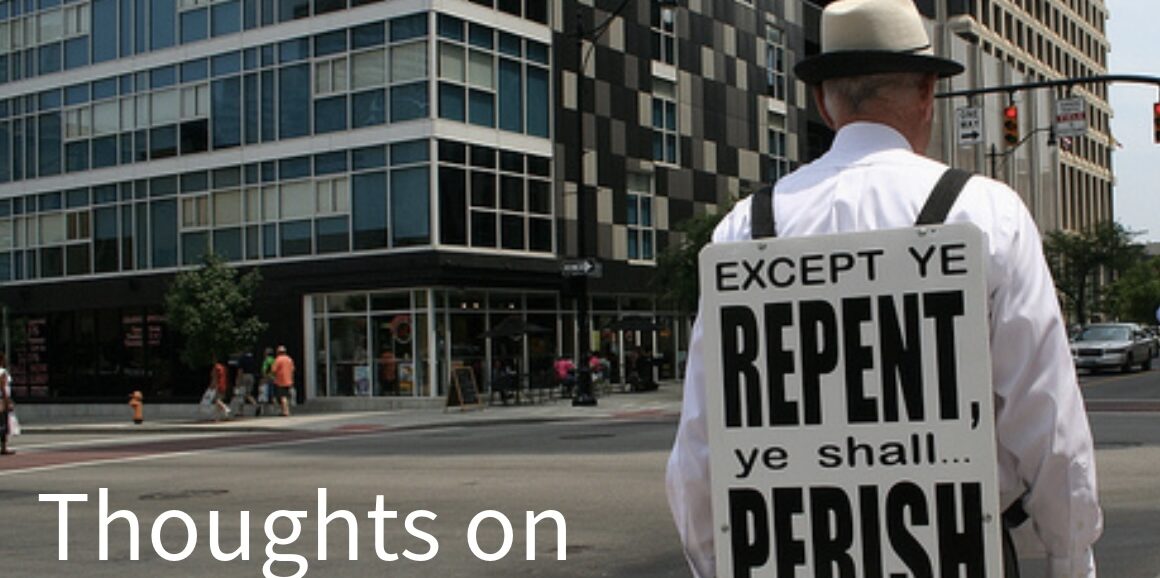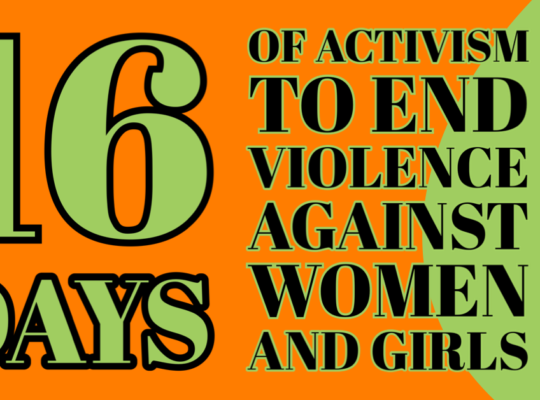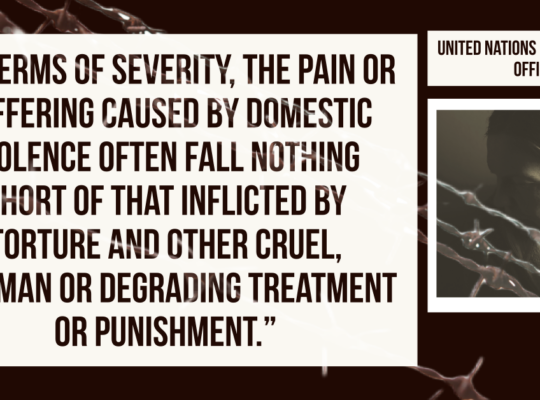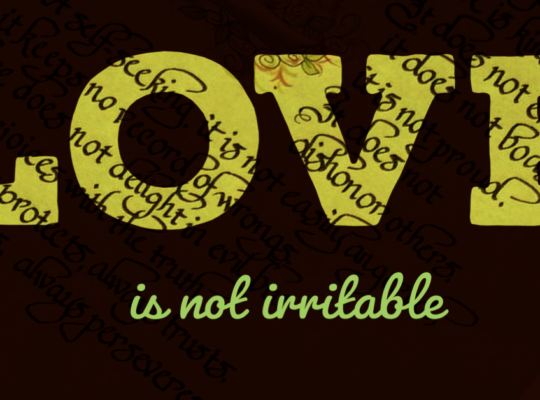Out walking with my friends last year we had the sudden and dreadful realisation that the group of teenagers we’d taken with us were no longer on the path ahead of us. A little while back we’d followed the signpost and turned off onto another track, the teenagers had obviously missed the sign. It wasn’t a problem. My friend phoned her daughter and said “you’re going the wrong way, turn around and come back”
When you think of repentance your first thought may go to the street preachers who hold signs and shout “Repent!” often with threats of hellfire if we don’t. Or perhaps you think of sackcloth and ashes, or of Paul Bettany flogging himself as penance for his sins in The Da Vinci Code? Repentance never sounds like a lot of fun does it?
It’s one of those religious words that doesn’t get used a lot outside the church. Maybe, if you’re a Christian you think about the call to repentance before taking communion; many of us consider repentance to be ‘saying sorry for the things we’ve done wrong.’ For some it’s something you do once when you become a Christian: ‘repent and turn to Christ’ and that’s it, we’ve given our life to Jesus: everything is all sorted now- right? At least as long as we follow the rules anyway?
The Greek word in the bible that is translated as ‘repentance’ is ‘metanoia’. It means to change your mind, not in a fickle way but in a complete and life changing way. It means to turn around 180 degrees, to do an about face and move in the opposite direction to where you were going. When Jesus calls us to repentance, he’s not saying “you’re a bad person, get on your knees and beg for forgiveness” (which might be the impression some of those men with scary signs about hell give us) rather he’s doing what my friend did to her teenager: He’s calling out to us “you’ve gone the wrong way, turn around and come back to me”
“you’ve gone the wrong way, turn around and come back to me”
When I talk about Jesus’ love, some Christians say “what about repentance?” Or “You want the love without the repentance?” They ask “why don’t you call people to repentance?” When I talk about how I believe we will all eventually be saved, some Christians even tell me “well that’s not fair, what’s the point of repenting now if everyone gets saved anyway?”
Let me tell you the point of repenting now: because it’s life changing. Quite literally, that’s what it means. Repentance and love aren’t mutually exclusive, Jesus calls us to change our lives (repent) because he loves us, because he wants us to experience abundance of life right here, right now. Repentance isn’t a chore, it’s not penance, it’s not something we begrudgingly do in order to get to heaven. Repentance is a choice we make to change something for the better and live our lives differently, it makes us better, it makes us happier, it makes us more fulfilled. It’s not something we demand people do in order to be welcome in God’s kingdom, it’s something we offer to people because we love them and want the very best for them.
It’s not something we do once then forget about, it’s something we do regularly, it’s the daily act of being transformed by the renewing of your mind (Romans 12:12) We turn away from, things that keep us from God, that prevent us from being our whole created selves, or that stop us from fully loving our neighbour. Repentance is simply the act of personal growth, or recognising things that are bad for us and changing those things. It’s deeply personal and transformative, but it isn’t any more especially spiritual or complicated than that.
We can all change our lives. We can all take time to self reflect and ask ourselves “what could I do differently?” or “am I living my best life? ” It’s not just religion that calls people to repentance, go browse the self-help section of any bookshop and you’ll see titles like ‘30 Steps to Finding yourself‘ (good one that one, buy it here) or ‘You can change your life’ or ‘Atomic Habits- tiny changes remarkable results.’ Self reflection, habit change, personal growth, everyone knows these things are good for you! Of course, as a Christian I believe that the best life change comes through following Jesus, but whether you choose to do that or not, you can still ‘metanoia’ and if in doing so you find more abundance of life, then I am sure that pleases God.
Leaving an abusive relationship is an act of repentance
One of my biggest life changes came when I left an abusive relationship. That was an act of repentance. I repented of allowing myself to be abused. I repented of quashing who I was and trying to fit myself into someone else’s mould. I repented of believing I didn’t deserve any better. I repented of centering my life around my husband instead of around God. I turned around and walked in the opposite direction. Leaving an abusive relationship is an act of repentance, for me it was a more significant act of repentance than the one I made when I first decided to follow Jesus, because it was this act of repentance that freed me from some of the major obstacles that were preventing me from really following Jesus.
When Jesus calls us to repentance he doesn’t just say “Repent!” He says “repent! And believe the good news” What is the good news? The good news is that you are loved beyond measure, that you were intentionally created by a God who views you as precious, his masterpiece and would do anything to be in relationship with you, you are a child of God and worthy of love, created to reflect the glory of God and to live an abundant, joy-filled, awesome life. Do you believe that?







